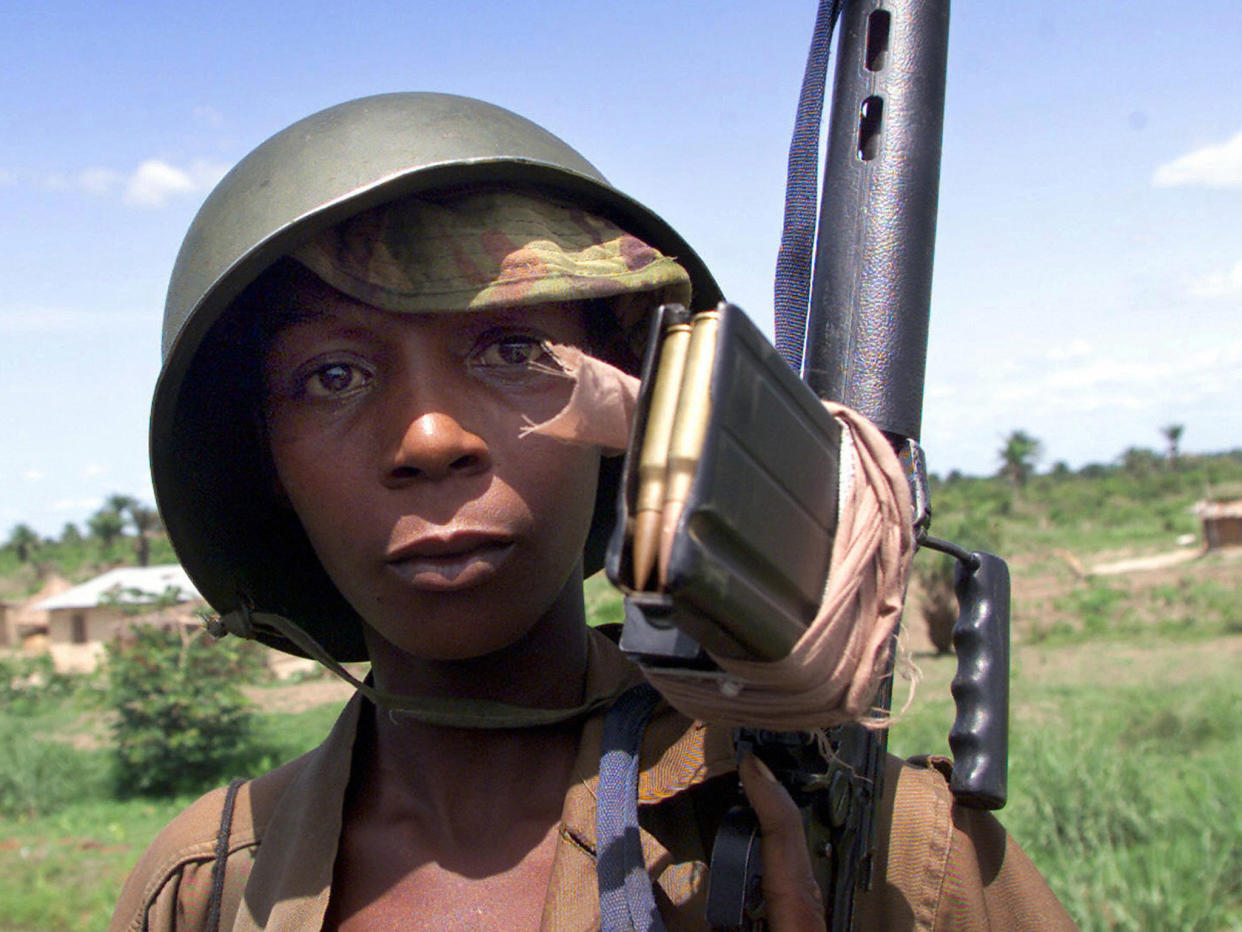Former child soldiers 'recruited by UK private security firm' in Iraq and Afghanistan

A British private security firm recruited former child soldiers to fight in Iraq and Afghanistan, it has been reported.
Aegis Defence Services hired men who had previously been forced to become child soldiers in Sierra Leone during its civil war in the 1990s and deployed them to work alongside the regular US armed forces, according to Al Jazeera.
The US government has a long track record of outsourcing war to mercenaries, known as private security firms.
In 2004, the US Department of Defense signed a deal with Aegis worth an estimated $293m (£227m) to provide personnel to serve alongside it during the wars against insurgents in Iraq and Afghanistan.
It is unknown how many former child soldiers were being recruited to fight in these conflicts but it runs contrary to UN and Western countries’ efforts to rehabilitate these men and help them readjust to civilian life.
The war, which last from 1991 to 2002, between the government and a rebel group called the Revolutionary United Front (RUF) killed approximately 50,000 people including many child soldiers.
The RUF was known for recruiting child soldiers and, according to one former commander, allegedly got them hooked on hallucinogenic drugs during training.
The top three commanders of the RUF were eventually convicted of war crimes and crimes against humanity by a UN-backed Sierra Leonean court in 2009.
Now it has emerged that the men who once fought for the RUF as children are now being used as cheap labour to facilitate more conflict.
Maya Mynster Christensen, an anthropologist at the Royal Danish Defence College, told Al Jazeera that the situation was ideal for both the company – which gets trained, cheap soldiers – and the Sierra Leonean government because it helps them get rid of potential troublemakers.
She said “From a Sierra Leone government perspective, the Iraq recruitment was considered a quite good deal, in the sense that they could actually take local troublemakers, sending them away to Iraq for a couple of years, and then returning them after two years with money earned from their overseas deployment.
“This could serve to stabilise security in Sierra Leone."
But psychologist Michael Wessels, who advises the UN and NGOs, said the West was failing to live up to its promises to these men and creating problems for the country further down the road.
He said: “Western countries have pumped large sums of money into the reintegration of former child soldiers, but now we have governments like the US supporting these so-called security companies that recruit people and continue their exposure to violence and cement their identities as perpetrators of violence as soldiers, that make it impossible to ever reintegrate into civilian life.

“We pride ourselves on being a moral people, trying to do the right thing. What we're doing is, we're exploiting people, using young people who've been child soldiers, deliberately sinking them into the jaws of combat and further violence.
“Nothing could be worse for these young people, nothing could be worse for security.”
Last year two former child soldiers who went to work for Aegis in Iraq threatened to sue the company for psychological harm.
The pair, which were represented by Leigh Day solicitor Rebekah Read, were recruited work as security guards in Iraq but were still “quite haunted” by being forced to fight as small children – both were recruited before their 13th birthday.
They allege the company failed to look after their mental health or provide counselling.
A former senior director at Aegis defended the practice to the Guardian at the time saying they had a “duty” to recruit in the country as African soldiers were cheaper than Europeans.
Former brigadier James Ellery said it would “quite wrong” to exclude men from working for them just because they had been forced to fight in the past.
In April 2016, a Danish documentary alleged the soldiers were being paid as little as $16 (£12.40).
The Independent has contacted Aegis for comment.
There is no suggestion that the company has done anything illegal.

 Yahoo News
Yahoo News 
